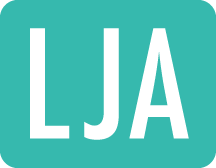The Conscience of the iSchool:
Ethics in the Digital World
Editor: Richard J. Cox
Price: $35.00
Expected: Fall 2017
ISBN: 978-1-63400-037-6
Publisher: Library Juice Press
It is easy to get caught up in all the promises and predictions of the digital age. In this collection of essays, the authors of faculty and others associated with one iSchool, undergoing considerable change, grapple with the ethical challenges in their research and teaching. Preparing to be an information professional does not just involve assembling a box of tools and skills, but it requires having a sophisticated knowledge of the social, political, cultural, economic, and ethical features of information, its creation, use, and maintenance. The essays chart the evolving nature of an ethical focus at the School, the ethics of teaching, how ethical topics have been integrated into the curriculum, ethical and effective approaches for evaluating student performance, informing students of ethical ways to manage data, ethical issues in open science research, humanistic approaches to computing, and the emerging literature on ethical aspects of computing.
The authors approach these topics from a variety of disciplines, including archival studies, the history and philosophy of science, human information behavior, knowledge management, data science and stewardship, and children and youth information studies. The book is dedicated to Ronald Larsen, retiring Dean of the University of Pittsburgh School of Information Sciences and a strong supporter of the ethical focus in iSchools.
Introduction
Richard J. Cox, “Ethics at One iSchool.” Cox is Professor, Archival Studies, at the University of Pittsburgh
Teaching
Richard J. Cox, “The Ethics of Teaching.”
Eleanor Mattern and Chelsea Gunn, “What are We Teaching? A Look at the Ethical Dimensions of iSchool Curricula.” Mattern is a Visiting Professor at the School and holds a PhD in Library and Information Science from the School. Chelsea Gunn is a doctoral student in the School where she is working on research interests located at the intersection of archival theory, media archaeology, and digital preservation.
Eric Hatleback, “The Pedagogical Benefits of Leveraging a Student's Strengths and Preferences." Hatleback is a Visiting Research Associate Professor at the School. He holds a PhD in the History and Philosophy of Science.
Sheila Corrall and Kip Currier, “Educating Information Professionals for Ethical Practice in the Big Data World.” Corrall is a Professor at the School and the author of numerous publications on library, information, and knowledge management topics. Currier is an Assistant Professor at the School where he has focused on ethical issues as well as human information behavior, intellectual property, scholarly communication; social networking; and diversity issues. In addition to a PhD in Library and Information Science, he holds a law degree.
Research
Liz Lyon, “What Price Ethics in an Irreproducible World?” Liz Lyon is Co-Chair, Information Culture & Data Stewardship Department, the Interim Doreen E. Boyce Chair, and a Visiting Professor. She has a PhD from the University of Reading and has been doing research in a variety of areas including open science, research data management, digital curation, informatics and libraries; data repositories and service models; scholarly communications; and citizen science.
Leanne Bowler. “Humanistic Approaches in Computing and Information Science: An Ethical Stance to Research and Teaching at the iSchool.” Bowler is Co-Chair, Information Culture & Data Stewardship Department and an Associate Professor at the School. She holds a PhD from McGill University. She has published extensively in the areas of children and youth information interaction in relation to metacognitive practices and the critical creation and use of information and information technology; health information behavior of children and youth; non-formal, interest-driven learning in cultural institutions (libraries, archives, museums) and with new media; and the methods of co-design/participatory design of technology for children and youth.
Conclusion
Richard J. Cox, “Final Thoughts.”
For Additional Reading
James King, “Freedom, Privacy, and Power: A Bibliographic Essay on Ethics and Information.” King is a doctoral candidate in Library and Information Science scheduled to defend his dissertation in the Fall 2017.

